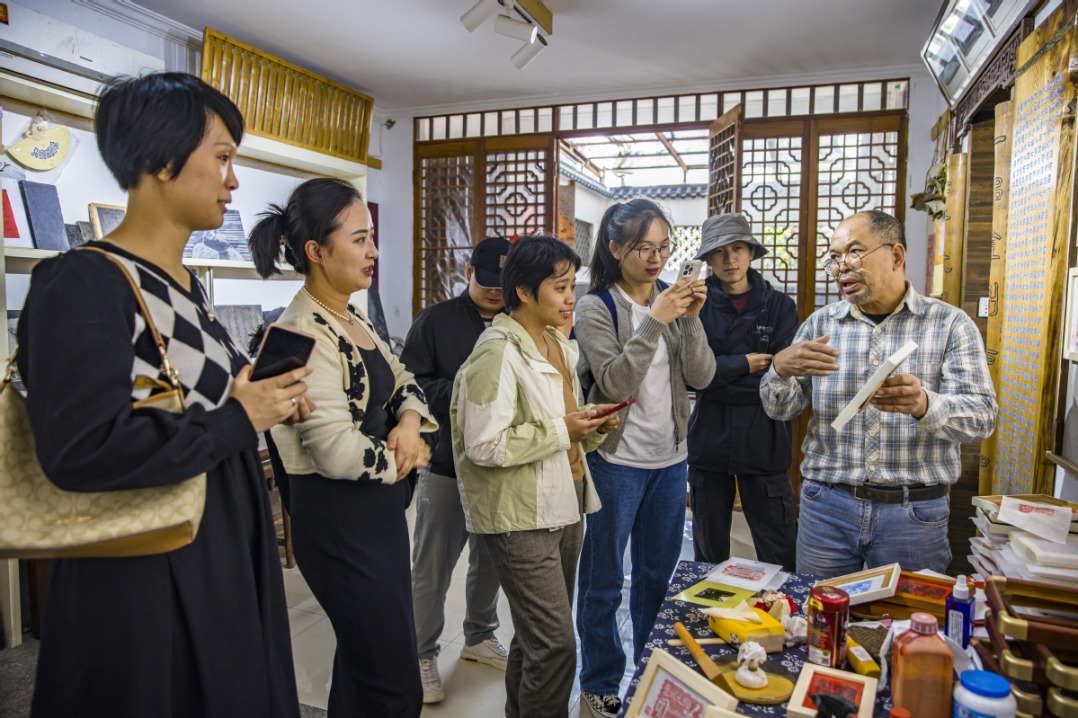Expert explores China for unknown reptiles
'Doctor Snake' from the US has discovered some 10 new species inside Hubei World Natural Heritage Site


"Not venomous, it's Elaphe carinata," Kevin Messenger said to his companions with a smile, as a colorful king ratsnake sank its teeth into his left forearm.
The 42-year-old herpetologist from the United States, who is also a professor at the College of Life Sciences of Nanjing Forestry University, was conducting a field survey in the Shennongjia National Park in Hubei province.
"He's not attacking, he's defending. I attacked him," he said calmly, clutching in his left hand the snake, which was almost as long as the height of a grown man, while one of his companions wiped away the fresh blood trickling from the wound.
Such a scene is a regular occurrence in his daily work. Over the years, Messenger has conducted scientific research in various ecological reserves in China, earning the nickname "Doctor Snake" among his colleagues.
Messenger has been fascinated by snakes since childhood. His earliest memory of a snake was at the age of 3, when his father, an emergency vet, brought home a python.
"I remember looking in the back of the truck and seeing this massive snake, and falling in love with it," he recalled. "I just thought it was the coolest thing I'd ever seen."
In May 2006, while he was finishing his undergraduate degree at North Carolina State University, Messenger noticed an online job posting that offered the chance to do a survey of reptiles and amphibians in the unexplored mountain range of Shennongjia.
He applied for the job, which was provided by a Sino-US collaborative research program, and just five days after his graduation, he flew to China and embarked on a four-month exploration of Shennongjia. "It was like a dream come true. Hiking and getting into the woods to catch reptiles and amphibians. ... That is exactly doing what I love," he said.
Messenger's interest in China continued to grow in the following years, deciding to do field work in China for his PhD program.
In 2017, Messenger earned two PhDs, one from Alabama Agricultural and Mechanical University and the other from Nanjing Forestry University. He then received a job offer in the US, but stayed in China to continue his research.
"One of the reasons why I wanted to continue my work in China is because the state of herpetology in China is still wide open," he said. "You can still go out to many many different places and find new species. And the natural history of many of these species we still don't have a full understanding of."
- Expert explores China for unknown reptiles
- Canteens for seniors feed demands of aging population
- Xinjiang launches freight train route to Central Asia
- Senior CPC official calls for standardized law-and-order platforms to address disputes in society
- Senior Chinese lawmakers meet amid legislative session
- Chinese premier expects China, ADB to boost cooperation




































